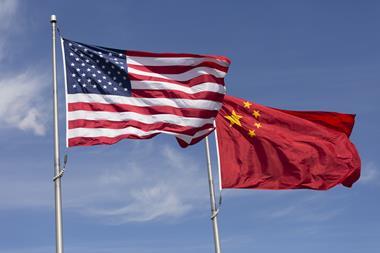
The Expense of Excellence: Academic Strain and Misfortune in Chinese Universities
The heartbreaking passing of Professor Liu Yongfeng, a distinguished materials scientist at Zhejiang University, has highlighted the intense work environment prevalent in Chinese academic institutions. At the age of 47, Liu fell victim to a cerebral haemorrhage, a deadly ailment often associated with extreme stress and exhaustion. His family links his premature demise to an “insane” workload that, as noted in an open letter from his wife, involved working far beyond China’s legally set labor limits.
During the period from March 2024 to January 20 of this year—a total of 183 official working days—Liu astonishingly logged 319 working days. Additionally, he endured regular workdays exceeding 12 hours, frequently leaving the office post 9 p.m., and was away from his home almost continuously due to travel for work and research obligations. His family states that this grueling routine had been his standard practice throughout his 18 years at the university.
Regrettably, Liu’s passing is not an isolated occurrence. The Chinese research community has been reeling from several comparable tragedies recently. Li Haizeng, another promising materials science talent, passed away at 34 due to a heart attack. Earlier this year, Li Haibo, a nanotechnology researcher, also died unexpectedly at 41. These instances are indicative of a distressing trend, with reports suggesting that at least eight other early to mid-career Chinese researchers have died prematurely in recent years.
The Overwhelming Pressure to Publish
This backdrop of tragedy stems from the intense pressures fostered by China’s academic framework. Over a decade ago, the Chinese Ministry of Education initiated sweeping reforms intended to enhance the nation’s global academic stature. These reforms highlighted the significance of high-impact publications, international partnerships, and the attainment of research grants. While they have resulted in a surge of scientific output and technological progress, they’ve also placed academics in a bind between escalating research expectations and routine teaching responsibilities.
A 2021 study released in BMC Public Health corroborated the physical health repercussions of prolonged working hours, implying that inadequate nutrition, persistent stress, and insufficient physical activity intensified the risk of severe health issues. Another study in the International Journal of Higher Education addressed a declining work-life equilibrium among Chinese researchers, many of whom express feeling stretched thin between research tasks, teaching, grant writing, administrative duties, and mentorship of students.
Competitive Atmosphere and Systemic Challenges
Cong Cao, a professor at the University of Nottingham Ningbo, underscores that academics are perpetually pursuing titles, promotions, and grant approvals—all of which necessitate considerable output and extra hours. The outcome? Even veteran scholars feel inundated, not to mention junior faculty and PhD candidates.
Xin Zhao, an environmental engineer at Northeastern University in Shenyang, identifies cultural expectations and fierce competition as contributing elements. “Chinese individuals typically embody a diligence… but competition is intense,” Zhao notes. What may be labeled as overwork in the West is frequently perceived as standard or even commendable in China.
Perhaps most concerning is the effect on graduate students, who encounter increasing pressures to prioritize publications over genuine learning and teamwork. One recent academic study highlights that doctoral students often disregard coursework and peer interactions in order to generate publishable research, relegating advisors to the role of mere publication facilitators.
Public Voices and Suppression
A significant hurdle in addressing these issues is the constrained environment for public discussion. Voicing concerns about systemic problems in Chinese academia can be perilous. Numerous scholars approached by media sources have opted out of interviews, citing restrictive national security regulations or fears regarding job stability. The pervasive silence surrounding academic mental health in China complicates efforts to gauge the true scale of burnout, depression, and overwork.
Nonetheless, Liu Yongfeng’s family opted to shatter this silence, utilizing his tragedy as a platform to call for reform—not solely for justice but so that “hardworking young and middle-aged researchers” might evade similar destinies. Their bravery has sparked renewed conversations regarding academic work culture, both inside and outside China.
A Universal Dilemma
China is not the sole nation grappling with this issue. The Wellcome Trust’s 2020 study on global research culture unveiled widespread concerns regarding academic overwork. Of the more than 2,700 researchers surveyed, nearly 70% indicated they worked over 40 hours weekly, with 11% exceeding 60 hours. Many felt compelled to sustain this workflow, particularly in competitive research settings characterized by fierce funding disputes and “publish or perish” mentalities.
A separate 2019 report from Nottingham Trent University found that 94% of academics surveyed believed excessive workloads were adversely impacting their mental health.
What Requires Change?
While the situations presented in China are particularly severe, they highlight a broader, global academic culture crisis. In China’s context, reforms are critical to recalibrate expectations. Suggested adjustments include:
– Reevaluating performance metrics to emphasize teaching, mentorship, and collaborative research instead of mere publication output
– Establishing institutional